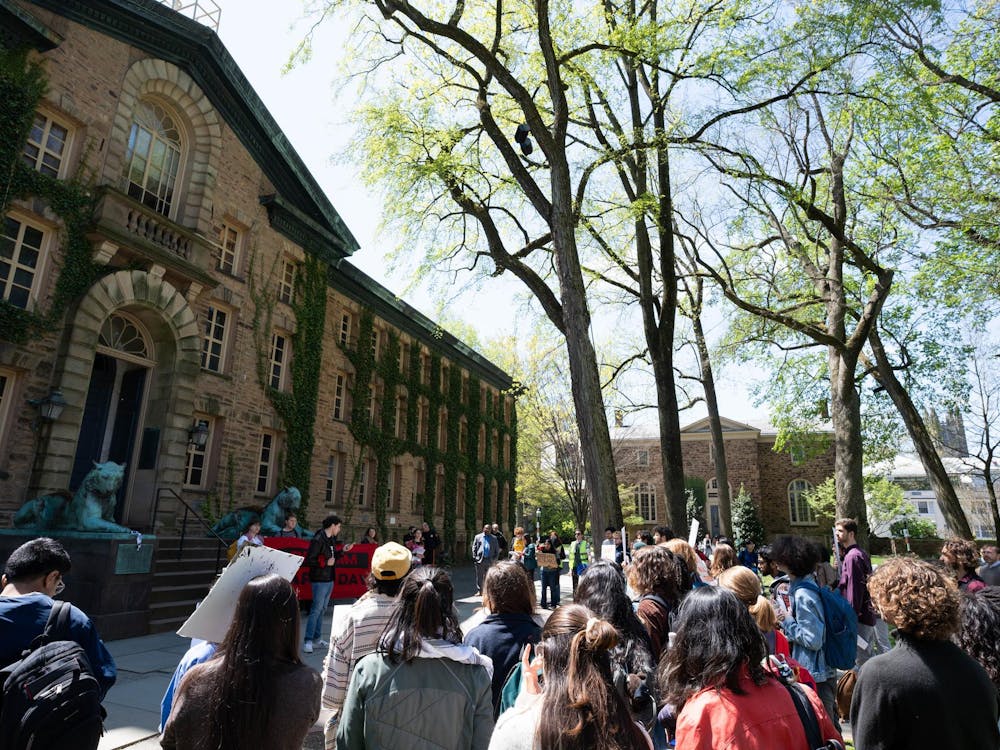Jan T. Gross, professor of history at the University, has always been a controversial person in Poland. Some would say this is because he confronts Poles with unpleasant facts of the Polish history. Other scholars, however, do not regard him as a historian at all, but rather an opportunistic performer who uses secondary historical sources and lacks professional methods of analysis.
Gross’s latest article tackling the issue of the present refugee crisis sparked a chorus of outrage in Poland. Originally disseminated on the opinion website, “Project Syndicate” (“Eastern Europe’s Crisis of Shame”) on Sept. 13, 2015 and subsequently reproduced in several other publications internationally, the article portrayed Eastern Europeans, especially Poles, as murderers and anti-Semites who “killed more Jews than Germans during the war.” He also accused Eastern Europe of being intolerant, xenophobic and incapable of sharing with Western European countries, especially Germany, the burden of the massive influx of refugees from Asia and Africa flooding Europe.
The reactions from the Polish intellectual circles did not take long. Politicians and news media called the Gross’s claims scandalous. Professor Pawe? ?piewak, the head of the Jewish Historical Institute in Warsaw commented, “Such grave and concurrently academically unwarranted accusations are unacceptable.”Ryszard Schnepf, Polish ambassador to the United States and a historian, wrote in response: “The author went completely overboard and crossed the line into the absurd. Documented instances of Polish collaboration with Nazi German occupiers are a drop in the ocean of compassion and practical aid provided to the persecuted. Those, who violated the good name of Poland and acted inhumanly, were punished accordingly. Sentences against collaborates were carried out by the Polish underground, and the August Law of 1944 mandated a death sentence to any collaborator, who contributed to the death of a Polish citizen, including Jews. The longest list of people of goodwill and compassion (in Yad Vashem) is that of the Polish Righteous Among the Nations.”
A reader who possesses a basic historical background quickly recognizes that Gross’s article is a manipulative attempt to stain the reputation of the Eastern European countries and to weaken their bargaining power in the European Union. Gross’s essay is full of slogans, misinterpreted facts and insinuations devoid of reliable historical sources. His observations included,“In the immediate postwar years, Eastern European Jewish Holocaust survivors fled from the murderous anti-Semitism of their Polish, Hungarian, Slovak, or Romanian neighbors,” “Poland’s Catholics could find little compassion for the fate of Nazism’s ultimate victims (Jews)”and“Eastern Europe, by contrast (to Germany), has yet to come to terms with its murderous past.”
Indeed, one cannot deny that during the Second World War there were shameful, isolatedcases of anti-Semitism or even cases of murder of Jews by Poles. However, this absolutely does not mean that the predominant attitude of Poles was anti-Semitic and that the Polish people should be wrongfully perceived as murderers who killed more Jews than Germans. On the contrary, there are ample examples of the Poles reaching out and saving Jews. ?egota, for example, was an underground organization of Polish resistance in German-occupied Poland which saved the lives of about 50,000 Jews. ?egota’s children department head, Irena Sendler, organized a shelter for 2,500 Jewish children from the Warsaw Ghetto. There are plenty other Polish heroes like Witold Pilecki, Jan Karski, Eugeniusz ?azowski or Jan ?abinski, who risked their lives to save Jews.
The article by Gross at the same time quickly praised the role of Germany in solving the refugee crisis and recommended that Eastern Europe should follow German leadership. However, four weeks after publication of Gross’s article, most of the German people, including leading politicians and journalists, are fed up with Merkel’s slogan of “wir schaffen das!” (yes, we can) and fiercely criticize her management of the mass migration of refugees.
What is even more upsetting is that, in contrast to Eastern Europe, Gross has suggested that Germany has “worked through” its murderous past. The reality however is not quite so. If Germany really worked through its past, why must Charlotte Knobloch, the head of Munich's Jewish Community, permanently urge the German politicians to act more effectively to forbid the nationalistic right-wing National Democratic Party. Also, one needs to address the question of why the German pro-Nazi organization National Socialist Underground could kill for 10 years innocent foreign citizens.
In this context, Gross’s article unveils the use of simplistic logic in an attempt to persuade Eastern Europe to passively accept irrational German leadership. While undertaking this attempt, he ignores the basic tools of the historian’s workshop.
The tragic refugee crisis will most probably aggravate. What happens, if the German chancellor says: “We have so many problems with the integration of the refugees in the society and the labor market due to the German language that we need to erase German and other national European languages from the map of Europe and replace it with English?” The Eastern European countries will certainly reject the German leadership again. What then will Gross do? Write an opinion article claiming that Hitler was just a Polish agent and that the Nazi were Eastern European soldiers in German uniforms?
The rescue efforts of Jews by Poles during the Second World War are fairly well-documented. Those interested just need to do a quick Google or Wikipedia search to learn about the heroic efforts that many Poles took during the war.
Marek Blazejak, M.D., M.B.A.
Hamburg, Germany









